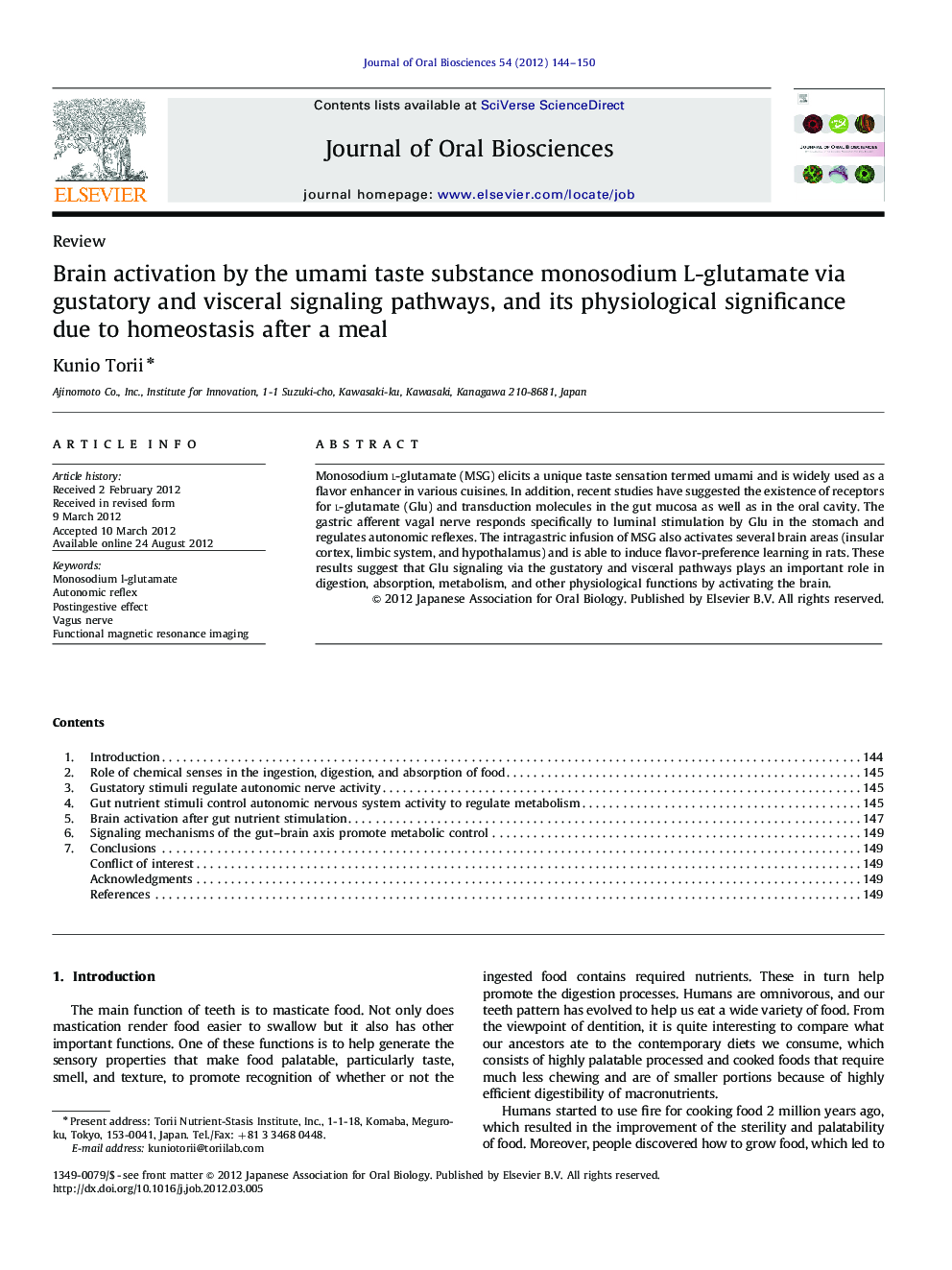| Article ID | Journal | Published Year | Pages | File Type |
|---|---|---|---|---|
| 10163704 | Journal of Oral Biosciences | 2012 | 7 Pages |
Abstract
Monosodium l-glutamate (MSG) elicits a unique taste sensation termed umami and is widely used as a flavor enhancer in various cuisines. In addition, recent studies have suggested the existence of receptors for l-glutamate (Glu) and transduction molecules in the gut mucosa as well as in the oral cavity. The gastric afferent vagal nerve responds specifically to luminal stimulation by Glu in the stomach and regulates autonomic reflexes. The intragastric infusion of MSG also activates several brain areas (insular cortex, limbic system, and hypothalamus) and is able to induce flavor-preference learning in rats. These results suggest that Glu signaling via the gustatory and visceral pathways plays an important role in digestion, absorption, metabolism, and other physiological functions by activating the brain.
Related Topics
Life Sciences
Biochemistry, Genetics and Molecular Biology
Clinical Biochemistry
Authors
Kunio Torii,
